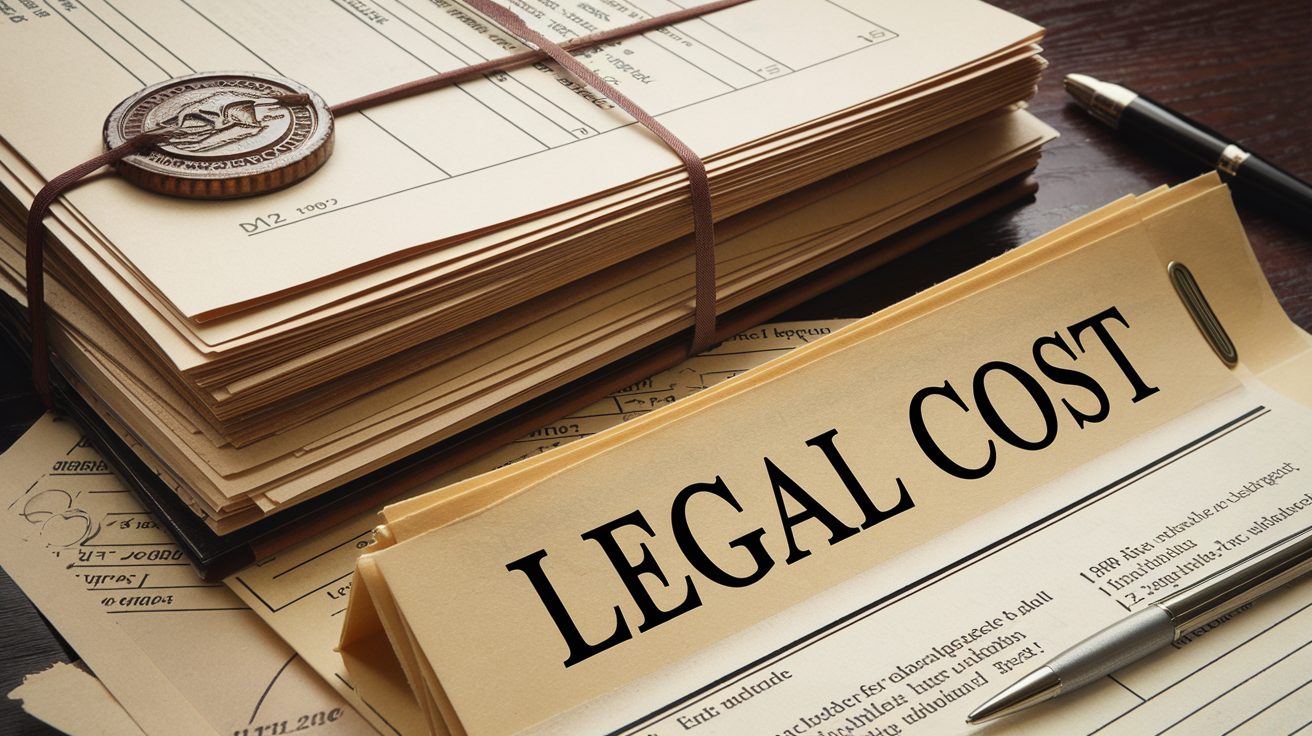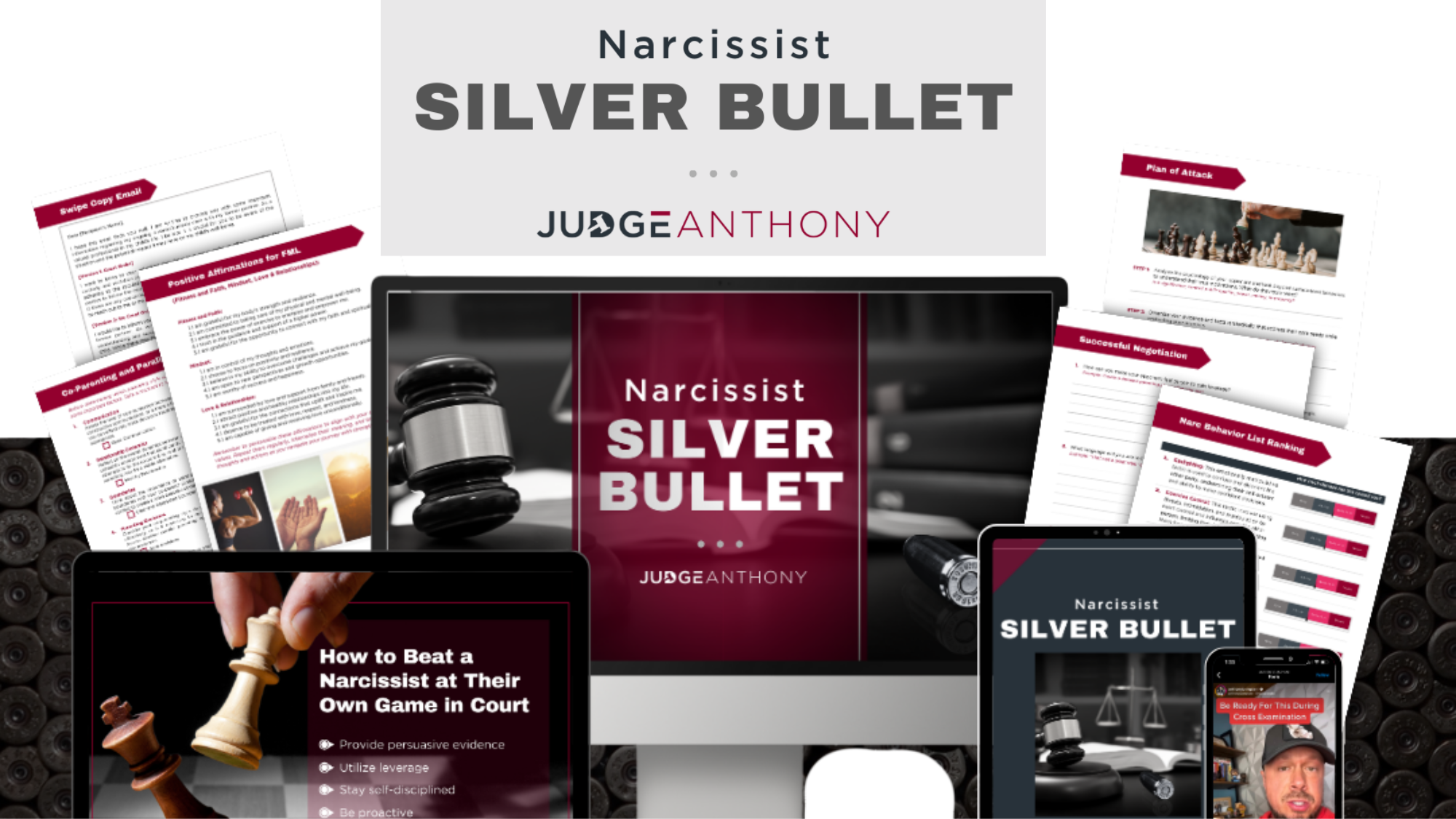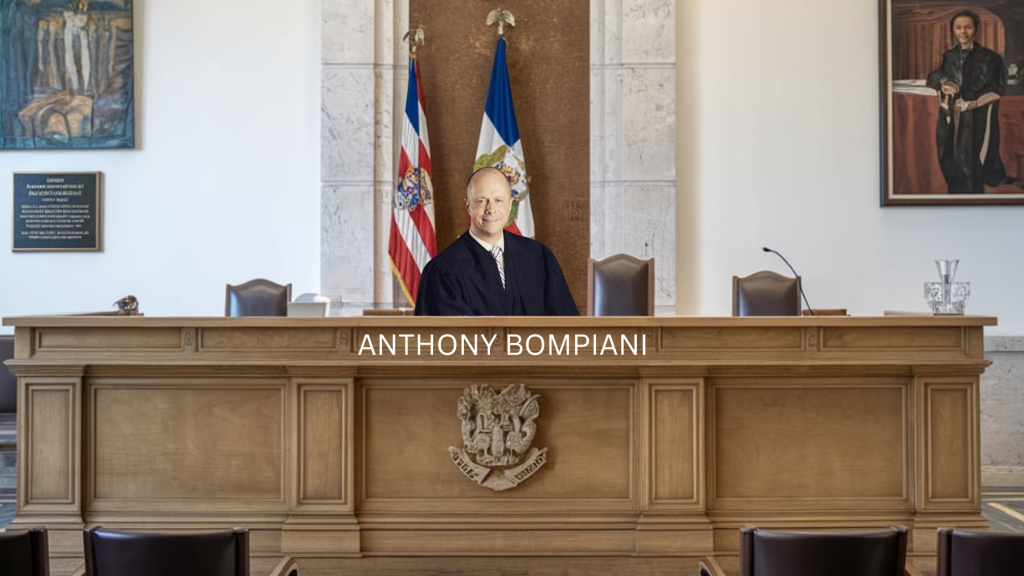Need help preparing for your court date?
Legal matters can feel complex when you need to appear in court. However, learning about the judge who will handle your case helps you prepare better.
Judge Anthony Bompiani presides over many cases, but finding clear information about him can be tough.
He serves a key role in various legal systems, and understanding his background and approach to cases makes a big difference.
This guide includes facts about Judge Bompiani’s legal career, ruling patterns, and courtroom expectations.
You’ll learn about legal viewpoints and what to expect in his courtroom. We’ll examine his education, experience, role, and court fees.
Who is Judge Anthony Bompiani

Judge Anthony Bompiani works as a district court judge in Pennsylvania. His role centers on making fair decisions in both civil and criminal cases. He earned his law degree and spent years practicing law before taking the bench.
Over his time as a judge, he has handled many different types of cases. These range from small claims to more serious legal matters. His work ensures fair treatment for everyone who comes to his court.
The judge follows strict rules of conduct and maintains high standards in his courtroom. He expects all parties to come prepared and show respect for court procedures.
His experience helps him understand complex legal issues that come before the court.
In his current position, he makes decisions that affect many people in the community. He reviews evidence, listens to arguments, and applies the law to reach fair outcomes in each case. His YouTube handle is Judge Anthony.
1. Background Information
Judge Anthony Bompiani earned his law degree from the University of Pittsburgh School of Law. His legal career started in private practice, where he worked on various civil and criminal cases. Before becoming a judge, he spent time as a prosecutor, handling many public safety cases.
The legal community recognizes him for his work in the Pennsylvania court system. His time on the bench shows his dedication to fair legal proceedings. He takes part in many community programs that help people understand the law better.
On the court, Judge Bompiani focuses on making clear, well-explained decisions. He makes sure everyone in his courtroom understands the legal process. His approach to cases combines his years of experience with careful attention to current laws.
2. Education
Judge Anthony Bompiani earned his foundation in law through dedicated studies at prominent institutions. He received his Bachelor’s degree with strong academic standing before moving forward to law school.
His law degree came from an accredited university, where he focused on key areas of legal practice.
During his academic years, he took part in legal clinics and study programs. These learning experiences helped build his understanding of different legal fields. His time in law school shaped his method of looking at cases and making decisions.
The judge also keeps learning through legal education programs. He takes part in workshops and training sessions that update his knowledge of new laws and court procedures. This helps him stay current with changes in the legal system
3. Current Role and Jurisdiction
He works as a Court of Common Pleas Judge. He handles cases in Pennsylvania’s legal system. His work focuses on both civil and criminal matters.
The judge oversees many types of legal cases. These include family disputes, property matters, and criminal trials. He makes sure each case follows proper legal steps. His court serves residents who need legal solutions.
Each day, Judge Bompiani reviews cases and makes important legal choices. He listens to both sides during trials and hearings. His decisions affect many people in the community. The judge must stay fair and follow state laws in every case.
His court welcomes people who need help with legal problems. The staff there can explain basic court rules. They help people understand what papers they need for their cases.
4. About the Courses
Judge Anthony Bompiani offers a free masterclass titled “How to Beat a Narcissist in Custody Court,” designed to assist individuals navigating custody battles involving narcissistic ex-partners.
Drawing from over 20 years of experience as a child custody attorney and judge, Judge Anthony provides strategies to manage interactions with narcissists during legal proceedings effectively.
- Judge Anthony Bompiani offers a free Evidence evaluator checklist titled “Learn How to Persuade the Court with Evidence in Any Divorce or Child Custody Battle.” This program is designed to equip individuals with the skills necessary to effectively present evidence in family court, aiming to achieve favorable outcomes in divorce and child custody cases.
- Judge Anthony Bompiani offers a paid course titled “Hire Judge Anthony and Create a Winning Strategy for Your Divorce or Child Custody Case.” This program is designed to assist individuals in high-conflict divorce or child custody battles, particularly those involving narcissistic partners.
- $550: One 30-Minute Session
- $950: One One-Hour Session
- $2550: Three One-Hour Sessions
- $4100: Five One-Hour Sessions
Typical Costs for Cases with Judge Bompiani
| Fee Type | Cost Range |
|---|---|
| Basic Court Filing Fee | $150 |
| Motion Filing Fee | $50 – $100 per Motion |
| Paper Copy of Court Document | $0.50 per Page |
| Certified Copy of Court Document | $5 per Document |
| Family Law Case Filing Fee | $200 – $400 |
| Business/Property Case Filing Fee | $500+ |
Understanding General Legal Costs in Judge Bompiani’s Court

Court costs include several basic parts that you need to know about. Filing fees start from $100 to $500, depending on your case type.
Administrative Court Fees
Court fees are the money you pay when filing papers or taking legal steps in Judge Bompiani’s court. These fees help run the court system and process your case.
Court proceedings include several basic administrative costs when your case goes before the judge. These expenses help maintain the court’s daily operations.
The basic filing fee starts at $400 for most civil cases. But remember, costs can change based on what kind of case you have. Some examples of fees include:
- Document Filing Fees: each time you submit legal papers, there’s a set price
- Service Fees: when you need papers delivered to other people in your case
- Transcript Fees: if you need written records of court sessions
- Copy Fees: when you request copies of court papers
Money should not stop you from seeking justice. The court can sometimes lower or remove fees if you show you cannot pay them. Ask the court clerk about fee waivers before your first filing.
Filing Costs
Court filing brings several expenses you should know about before starting your case.
The basic filing fee varies based on your case type and location. These fees help cover court operations and paperwork processing.
Most courts ask for payment when you submit your documents. The clerk’s office accepts various payment methods, including cash, cards, and certified checks. Some courts also offer online payment options for simpler cases.
You might need to pay extra for certified copies of documents or additional paperwork during your case. Each copy typically costs a few dollars, and you may need several copies for different parties.
The Release of the “Narcissist Silver Bullet Program.”

Judge Anthony Bompiani has created a helpful program to support people dealing with difficult personal situations. The program focuses on providing tools and information for those facing challenges in their relationships or family lives.
This new program offers step-by-step guidance based on real court cases and legal experiences. The materials include practical advice, legal insights, and useful strategies that people can use.
The program combines judge bompiani’s years of courtroom knowledge with clear, direct guidance. It aims to help users understand their rights and options under the law.
Many participants have found the program’s straightforward approach useful in legal matters.
Tips to Beat a Narcissist During High Conflict by Judge Anthony
Court battles often become heated, especially when strong personalities clash. Judge bompiani offers several useful methods to handle these situations effectively-
- Stay Focused on Facts, Not Feelings: The court needs clear proof and solid evidence. Keep a record of all communications and events with dates and times. This helps build a strong case that stands up in court.
- Present Your Points Calmly and Clearly: Speaking with respect shows strength. Judge bompiani notes that staying professional helps your case more than showing anger or frustration.
- Keep Responses Brief and Truthful: Long explanations can weaken your position. Simple, honest answers work best in court.
- Document Everything Properly: Save emails, text messages, and written communications. Take notes during phone calls. These records support your statements in court.
- Follow Court Rules Carefully: Submit paperwork on time. Show up early for hearings. Meet all deadlines. This shows respect for the legal process.
Conclusion
Judge anthony bompiani’s work shows his commitment to fair legal decisions. Looking at his cases, we see he takes time to study facts and listen to all sides.
His careful handling of family matters, child support cases, and contract disputes helps people get proper legal solutions.
This overview helps you understand what to expect in his courtroom. Remember that each case gets his full attention, with close looks at documents and clear reasons for decisions.
For your next steps, prepare all the needed papers for your case. Read court rules, show up on time, and speak clearly.
Lastly, good planning helps you present your case well in Judge Bompiani’s Court.








